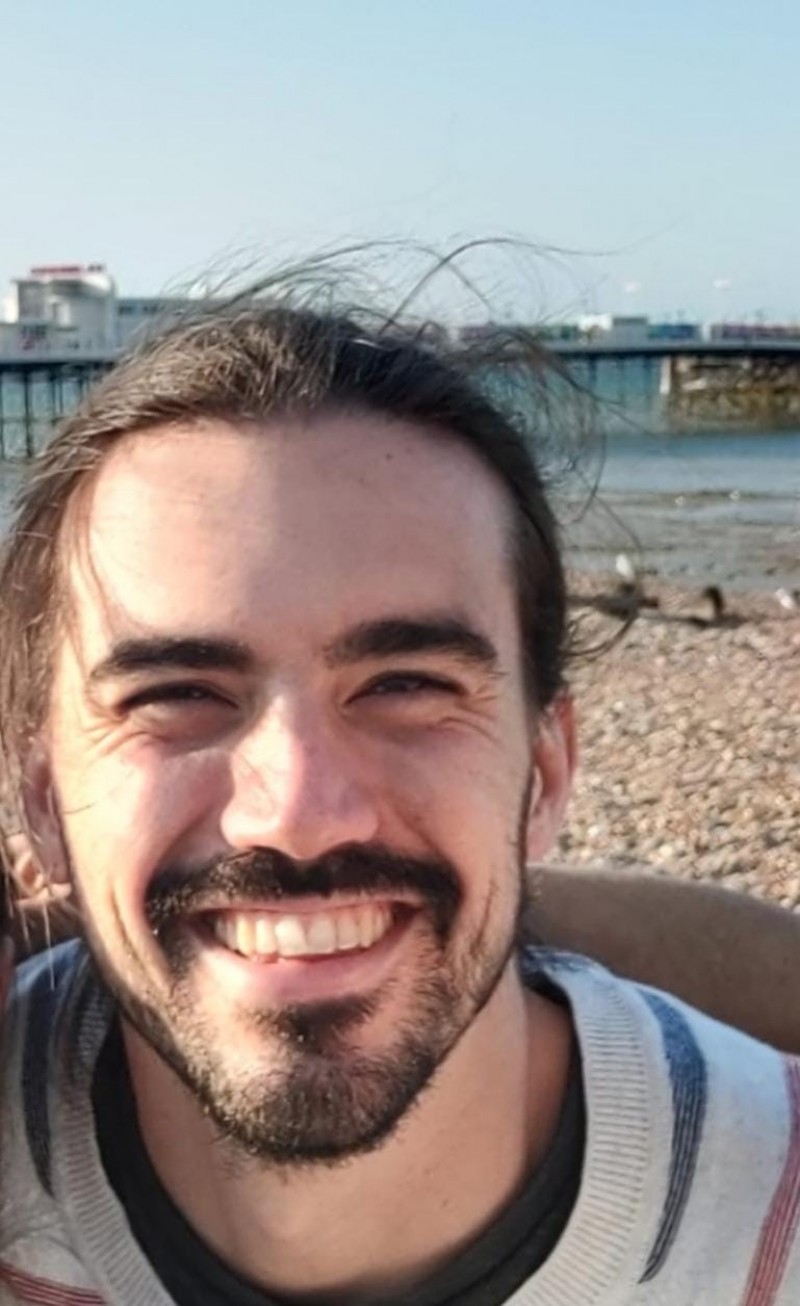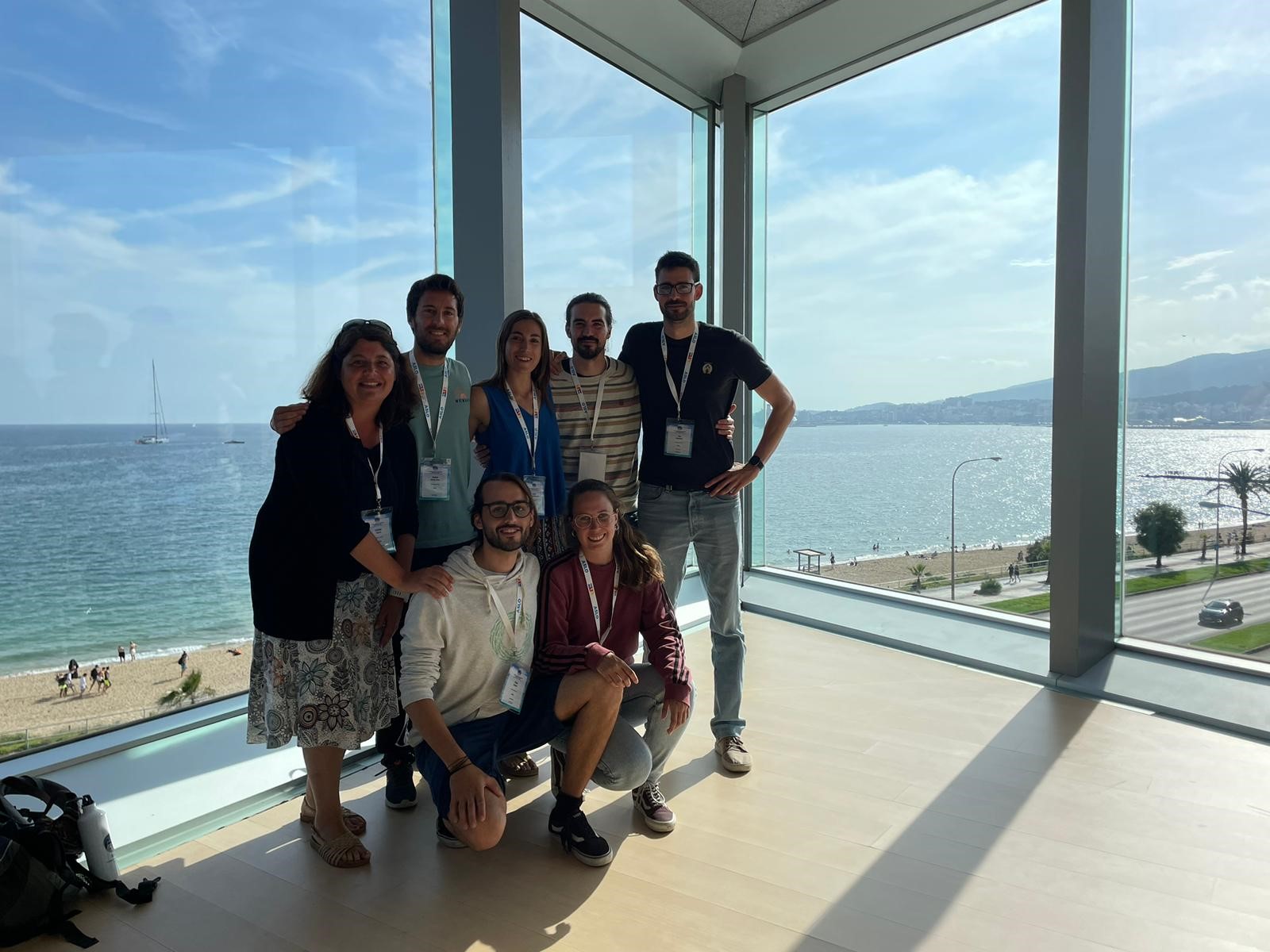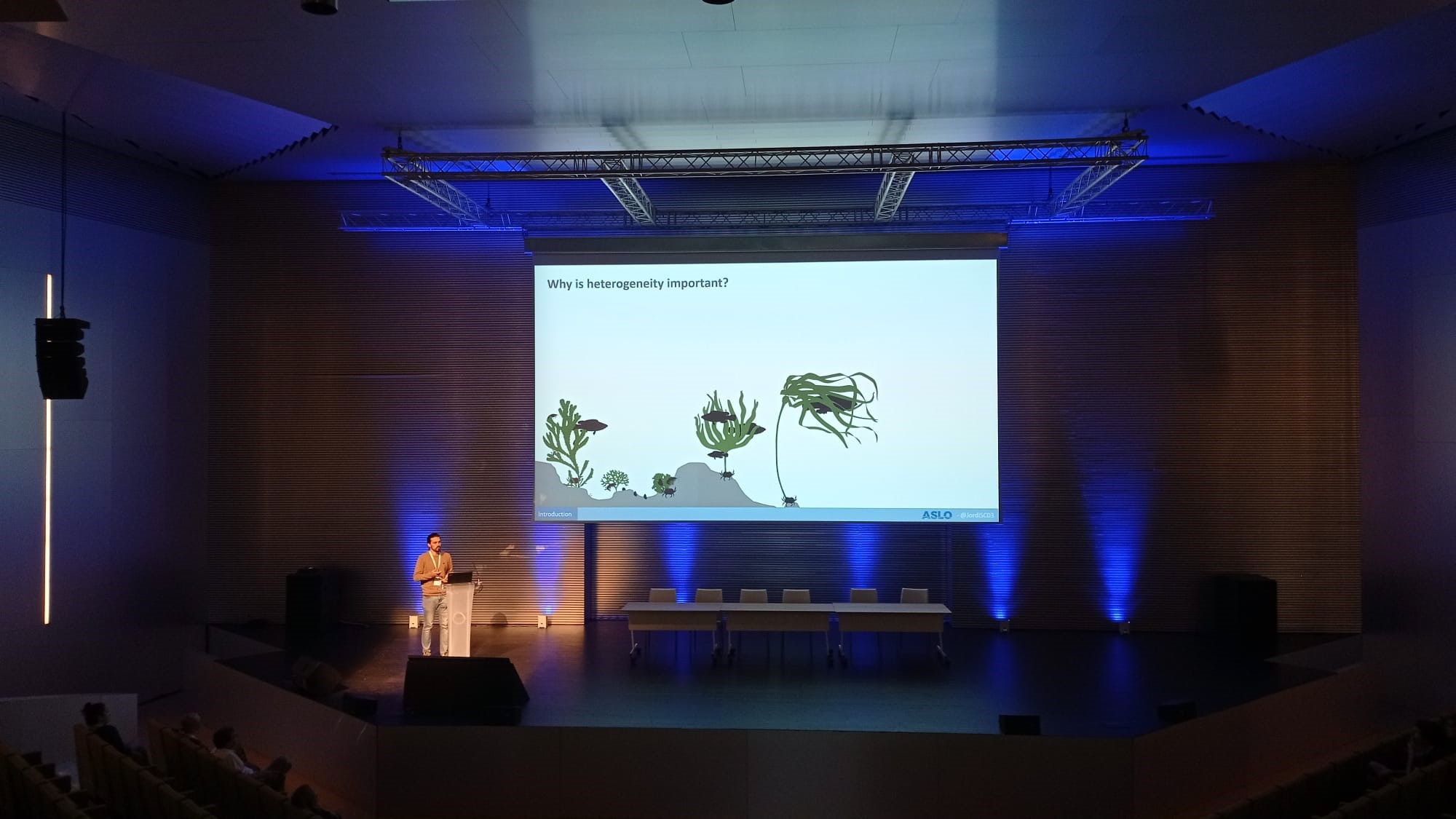The Association for the Sciences of Limnology and Oceanography Aquatic Meeting 2023 (ASLO 23)
Jordi Sola
Swansea University

In June 2023, I swapped the British weather for a dose of sun, sea and marine science in Mallorca. Thanks to the Challenger Society Travel Award, I was able to attend and participate in the Association for the Sciences of Limnology and Oceanography (ASLO) Aquatic Meeting 2023 which took place in Palma de Mallorca between June 4th-9th. This was my first time giving an oral presentation in an international conference; and although the experience of presenting to an auditorium was a nerve-racking one, this meeting had much to offer.
ASLO has a long tradition of holding international meetings. Every 2 years, aquatic ecologists from around the world gather to discuss a vast array of research topics. This meeting is one of the largest gatherings for aquatic ecologists; touching on a range of subjects from physical oceanography to citizen science and diversity in science. This year’s theme, the resilience of aquatic systems in the face of global change, was linked to my research and allowed me to explore various topics with a focus on climate change and ecosystem stability. This wide range of topics linked to resilience also helped highlight the transdisciplinary nature of much of current ecological work.
A number of plenary talks set the tone for the general meeting and offered the opportunity to learn from world-leading researchers; giving a bird-eye’s view of their research and discussing how to tackle the crucial issues facing our oceans today. For example, the need to refocus the ASLO society’s efforts in engaging with the climatic, environmental and related societal issues facing our planet, the state of coral reef conservation and restoration, the importance of appropriate management for global fisheries, the application of conservation approaches in coastal communities, and the benefits and challenges derived from them.
Concurrent special sessions, prepared by research groups from external institutions, took a deeper dive into individual topics. These included talks from leading researchers in each topic area on their latest research. This alone made all the hectic runs between the eleven rooms, holding simultaneous sessions, worthwhile. The varied talks allowed me to connect topics as different as energy transition effects on ecosystems, ecological tipping points, marine heatwave effects on ecosystems, blue carbon, ocean acidification and habitat restoration within a single morning!
Caption: In between sessions, we got to enjoy the views to Palma Bay from the venue.
We also had poster sessions every evening. A lot of interesting chats with other students sparked unexpected connections and fuelled our common interests in the marine environment. This was one of the most sociable moments in the conference, where students and researchers mingled and discussed a long range of topics. These one-to-one chats gave a lot of insight into topics that had been discussed during special sessions, and it was a great chance to meet people with similar topics of research.
Finally came the last day, and with it my time to present. My talk focused on the role of substrate topography (i.e. heterogeneity and complexity) and quantitative appraisal of its effects in rocky shore communities around the globe. Using data from 150 studies, I looked into how different forms of heterogeneity increased diversity, abundance and biomass in communities, what organisms are most benefited by heterogeneity, and the local and geographical drivers behind these effects. I enjoyed the discussion afterwards, which focused on the effect of human impacts on these heterogeneity effects. This talk marked an important personal milestone, since it was the first time presenting the final results from my PhD to an international audience.
Caption: Giving my presentation on local heterogeneity effects in rocky shore communities across latitudes, organismal groups and depths.
Overall, ASLO opened a window to the world’s state-of-the-art marine research. It provided an opportunity to meet many researchers at different career stages, allowed me to listen to and participate in discussions on new developments in aquatic sciences, and gave a valuable insight into future opportunities and collaborations. I am incredibly grateful to the Challenger Society for their support in my attendance, and I am looking forward to attending ASLO meetings again in the future!
Profile
I am a final-year PhD student at the Biosciences Department at Swansea University. My PhD research focuses on the role of habitat heterogeneity and complexity in driving the structure and functioning of rocky shore communities. This has involved a field experimental approach - looking into niche theory, temporal community stability, spatial scales and biodiversity-ecosystem functioning relationships - and synthesising literature to expand these relationship across latitudes, depths, organism groups and a range of metrics.
Latest News
Royal Society Publishing Photography Competition 2025
Please see a message from the Royal Society below:
We are delighted to announce that the 2025 Competition is now open for entries until 15 August for a chance to win £1000! The competition celebrates the power of photography in conveying the wonder of science happening all around us and photographs can be submitted in the categories of: Astronomy, Behaviour, Earth Science and Climatology, Ecology and Environmental Science, and Microimaging.
The competition is free to enter and open to anyone studying or working in science at graduate level or above. Category winners will receive a one-year membership to the Royal Photographic Society and the overall winner will receive a grand prize of £1,000. Find out more: https://bit.ly/RSPphotocomp
October 2025 MEDIN Workshop: Marine Data Management, Governance and the MEDIN toolset
The Marine Environmental Data and Information Network (MEDIN) are pleased to announce that registration is now open for the next occurrence of our popular free online training workshop: ‘Marine Data Management, Governance and the MEDIN toolset’ on the 13th – 17th October 2025 on OceanTeacher Global Academy.
Marine Data Management, Governance and the MEDIN toolset
The Marine Environmental Data and Information Network (MEDIN) and OceanWise are delighted to invite you to attend our popular free online training workshop: ‘Marine Data Management, Governance and the MEDIN toolset’ on the 19th – 23rd of May 2025.
